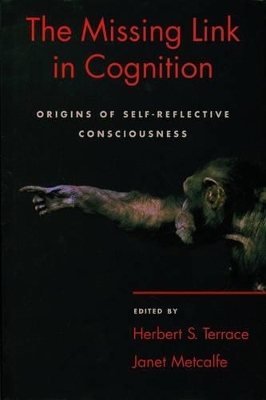
The Missing Link in Cognition
Oxford University Press Inc (Verlag)
978-0-19-516156-4 (ISBN)
How do we develop self-awareness, or a sense of self? One of the most popular theories is that language plays a major role: language and the narrative form allow us to develop a sense of self because this sense is dependent upon representational thought and the psychological manipulation of representations. Some scholars argue against this theory, claiming that more than language and representational thought is needed. Comparing human and animal cognition is a particularly powerful way of examining this disagreement; if animals possess self-awareness without having the representational linguistic capabilities of humans, then the comparison will provide significant evidence for the argument that language and narrative form do not play the only role, and that researchers may have overlooked a cognitive link. Terrace and Metcalfe propose to facilitate this work of some participants, such as Endel Tulving, Janet Metcalfe, and Daniel Povinelli, shows that self-awareness, metacognitions, and representational thought are unique to humans, while that of precursors to self-aware thought processes exist in non-human primates, the debate is likely to be lively and informative. This volume will be of great interest to researchers in cognitive, developmental, and social psychology.
Herbert S. Terrace obtained his Ph.D at Harvard University, where he was a student of B.F. Skinner. Partly as a result of Project Nim (an attempt to teach sign language to the chimpanzee Nim Chimpsky), his interests changed from behaviourism to animal cognition. Currently, he is investigating the ability of monkeys to remember arbitrary sequences and has provided extensive evidence that they can think about those sequences without language. Janet Metcalfe received her doctorate from the University of Toronto. Although she started her career as a computational modeler of human memory, having developed a composite holographic associative recall model (CHARM), she has, for many years, studied human metacognition. She has published extensively on the mechanisms underlying human metacognitive abilities, and the repercussions of these abilities. She has been an editor of several special issues on human metacognition including the popular volume Metacognition: Knowing about Knowing.
1. Episodic memory and autonoesis: Uniquely human? ; 2. Self-reflective consciousness and the projectable self ; 3. Metacognition and the evolution of language ; 4. Emerging levels of consciousness in early human development ; 5. A continuum of self-consciousness that emerges in phylogeny and ontogeny ; 6. Humans as applied motivation scientists: Self-consciousness from "Shared Reality" and "Becoming" ; 7. Two normative roles for self-consciousness ; 8. Progress in the study of chimpanzee recall and episodic memory ; 9. Do non-human primates have episodic memory ; 10. Studies of uncertainty monitoring and metacognition in animals and humans ; 11. Can Rhesus monkeys discriminate between remembering and forgetting? ; 12. Meta-confidence judgements in Rhesus Macaques: Explicit versus implicit mechanisms ; 13. The self and other: A missing link in comparative social cognition
| Erscheint lt. Verlag | 10.2.2005 |
|---|---|
| Zusatzinfo | numerous halftones, colour plates, graphs and line drawings |
| Verlagsort | New York |
| Sprache | englisch |
| Maße | 236 x 163 mm |
| Gewicht | 700 g |
| Themenwelt | Geisteswissenschaften ► Psychologie ► Allgemeine Psychologie |
| Geisteswissenschaften ► Psychologie ► Entwicklungspsychologie | |
| Geisteswissenschaften ► Psychologie ► Sozialpsychologie | |
| Geisteswissenschaften ► Psychologie ► Verhaltenstherapie | |
| Naturwissenschaften ► Biologie ► Zoologie | |
| ISBN-10 | 0-19-516156-4 / 0195161564 |
| ISBN-13 | 978-0-19-516156-4 / 9780195161564 |
| Zustand | Neuware |
| Informationen gemäß Produktsicherheitsverordnung (GPSR) | |
| Haben Sie eine Frage zum Produkt? |
aus dem Bereich


